Daniel Sutter: Just what the doctor ordered

The U.S. House of Representatives recently passed the American Health Care Act (AHCA), an expansive bill which Republicans claim delivers on their promise to repeal and replace the Affordable Care Act. The AHCA proposes changes to Medicaid that should control costs, and could even improve the quality of care for low income Americans. Medicaid is the joint state and Federal program providing health insurance for the poor and disabled. States operate the programs, with rules and over half of the funding provided by Washington. Since Medicaid’s founding in 1965, matching grants have doled out Federal dollars, with states receiving from $1 to $3 for each dollar spent (low income states get a better match). Beginning in 2020 under the AHCA, states would receive a fixed dollar amount per beneficiary, for each of five beneficiary categories. Alternatively, states could elect to receive a block grant, meaning a fixed dollar amount not dependent on the number of enrollees. Medicaid’s match has been open-ended, so that spending more on approved coverage brings in more Federal dollars. High income states have obtained more Federal dollars through generous optional coverage. But this means that for any total of Federal spending, fewer dollars are available to help poor states, compromising the quality of care. Matching grants have also produced billions of dollars of spending on services that Americans do not think are worthwhile. This last point requires some explanation. People obviously do not agree on how much we should spend on Medicaid (or any program). Labeling spending “wasteful” often simply disguises personal opinion. I think that some Medicaid spending can be more validly called wasteful. Suppose that a state considers spending $100 million on Medicaid. Given Alabama’s matching rate, our state legislators would need to appropriate about $35 million to cover $100 million of services. Is this spending worthwhile? Most Alabamians are not on Medicaid, so if we think solely in terms of personal benefit, most of us would say no. But Americans give almost $400 billion annually to charity, and so clearly consider the well-being of others. We would need to think about how much we value providing medical care for those who can’t afford it. The thinking resembles deliberating about individually donating $100 to a charity; if we give the money, we effectively say that helping others is worth at least $100. For the Medicaid example, Alabamians should consider exactly what procedures and persons will be covered, and whether we can afford the taxes. Let’s say we do this and come up with a value. If the value is at least $100 million, the spending is worthwhile. Unfortunately, Medicaid’s matching grants encourage Alabamians to only worry if the services are worth the $35 million we must spend. Yes, we pay a share of Federal taxes, but separately from decisions about Medicaid. So we might approve spending which we believe yields only $50 million in value. Spending $100 million to produce $50 million in value, I think, counts as waste. Block grants make states pay the full cost of extra spending. Consequently, Alabama and other states should only spend $100 million on Medicaid when the perceived value is at least $100 million. The Congressional Budget Office estimates that the ACHA will reduce Medicaid spending by $880 billion over a decade. Would this eviscerate Medicaid? Spending today exceeds $500 billion annually, and is projected to rise, so we will still be spending roughly half a trillion dollars a year. More importantly, the cuts should target coverage that Americans judge to not be worth the cost. No state would be compelled to cut coverage for any person currently on Medicaid. The first lesson of economics is that incentives matter. Medicaid’s open-ended matching grants create bad incentives under which states waste our tax dollars. The AHCA is a broad bill, and some elements may do more harm than good. But ending Medicaid matching grants would be a prescription for improvement. ••• Daniel Sutter is the Charles G. Koch Professor of Economics with the Manuel H. Johnson Center for Political Economy at Troy University and host of Econversations on TrojanVision. The opinions expressed in this column are the author’s and do not necessarily reflect the views of Troy University.
Poll: GOP health bill a far cry from Donald Trump promises

President Donald Trump has called the House-passed health care bill a “great plan,” but a new poll finds that 3 out of 4 people in the United States do not believe it fulfills most of his promises. The poll out Wednesday from the nonpartisan Kaiser Family Foundation also found a growing share of the public concerned that the GOP’s American Health Care Act will have negative consequences for them personally by increasing their costs, making it harder to get and keep health insurance, or reducing quality. In the poll, only 8 percent said the Senate should pass the House bill as it is. “There is nothing in this poll, that if you were in the Senate, would cause you to rush out and pass the House bill,” said Drew Altman, president of the foundation, a clearinghouse for health system information. It was the latest in an ongoing series of Kaiser surveys on health care. Senators are on break this week, back in their home states sounding out constituents. In Washington, staffers are working on a legislative framework that can get 51 votes. The House bill would eventually lead to 23 million fewer people covered, according to a recent Congressional Budget Office estimate. While it would reduce average premiums over time, it could also destabilize coverage for people with health problems in some states. The GOP measure would eliminate former President Barack Obama‘s Medicaid expansion and limit future federal financing for that safety net program. It would repeal the unpopular requirement that most people get covered or risk fines. It would continue to provide subsidies for private health insurance, but at a reduced level. And it would cut taxes on upper-income people that Democrats raised to finance their Affordable Care Act. As a candidate and as president, Trump has made reassuring promises about health care. While offering few details, he’s promised to improve coverage and cut costs. Days ago the president tweeted, “I suggest that we add more dollars to Healthcare and make it the best anywhere. ObamaCare is dead – the Republicans will do much better!” But both the House GOP bill and Trump’s own budget would make big cuts across a range of health care programs, from insurance to medical research. In the poll, 3 in 4 people said they don’t think the narrowly-passed House bill fulfills most of Trump’s promises. Thirty-five percent it fulfilled none of his promises, while 40 percent said the bill fulfills some Trump promises. Only 4 percent said the GOP bill fulfilled all of the president’s promises, while another 10 percent said it delivered on most of his promises. Drilling down to Republicans, only 30 percent said the bill delivered on all or most of Trump’s health care promises. Fifty-one percent said it fulfilled some pledges. On the plus side for Trump and his congressional allies, the poll found that the GOP base continues to support the House bill, with 67 percent of Republicans saying they view it favorably. And a plurality of Americans – 42 percent – expressed support for Medicaid work requirements favored by the GOP Other findings are not so reassuring. After Trump won, relatively few people saw personal risks from his promised repeal of Obama’s health overhaul. Only 28 percent thought it would increase the cost of their own health care, while 21 percent said it would worsen access to health insurance, and 19 percent were concerned about quality. Now, when asked about the GOP health care bill, 45 percent feared their costs would go up, 34 percent were worried about their ability to get and keep health insurance, and 34 percent were concerned that quality would suffer. The poll found that Obama’s law is more popular than the House plan. Forty-nine percent had a favorable view of Obama’s overhaul, compared with 31 percent who had a favorable view of the Republican proposal. The Kaiser poll was conducted from May 16-22 among a nationally representative random digit dial telephone sample of 1,205 adults. The margin of sampling error is plus or minus 3 percentage points for the full sample. For results based on subgroups, the margin of sampling error may be higher. Republished with permission of The Associated Press.
Alabama sees America’s highest premium spike under Obamacare

A new report from the Department of Health and Human Services (HHS) details the premium changes Americans across the country have experienced under former President Barack Obama‘s signature legislation, Affordable Care Act, better known as Obamacare. According to the report, which uses the data the Obama administration relied on, “average exchange premiums were 105 percent higher in the 39 states using Healthcare.gov in 2017 than average individual market premiums in 2013.” “Premiums for individual market coverage have increased significantly since the Affordable Care Act’s key provisions have taken effect,” the new report reads. The report also found the State of Alabama saw the nation’s highest premium increase since the implementation of Obamacare with an average 223 percent increase between 2013 and 2017 due to the new regulations. That’s more than double the national average. Alabama 2nd District U.S. Rep. Martha Roby said the statistics show why Republicans are working to offer Americans relief from the burdensome law. “The numbers are staggering. Insurance premiums and deductibles have skyrocketed due to the regulations and mandates imposed by Obamacare,” Roby said. “Providers have been forced out of the market, and Alabama consumers now only have one option for health insurance. Problems like these are why I worked to help build support for our three-step plan to repeal and replace Obamacare.” Earlier this month the U.S. House of Representatives passed the American Health Care Act (AHCA), which is the first of a three-phase plan by Republicans in Congress and the Trump Administration to repeal and replace Obamacare and rebuild America’s health care system, based on a plan that is intended to lower premiums and other out-of-pocket costs that have come to weigh on patients.
Health care fight shifts to Senate, where GOP wants a reboot
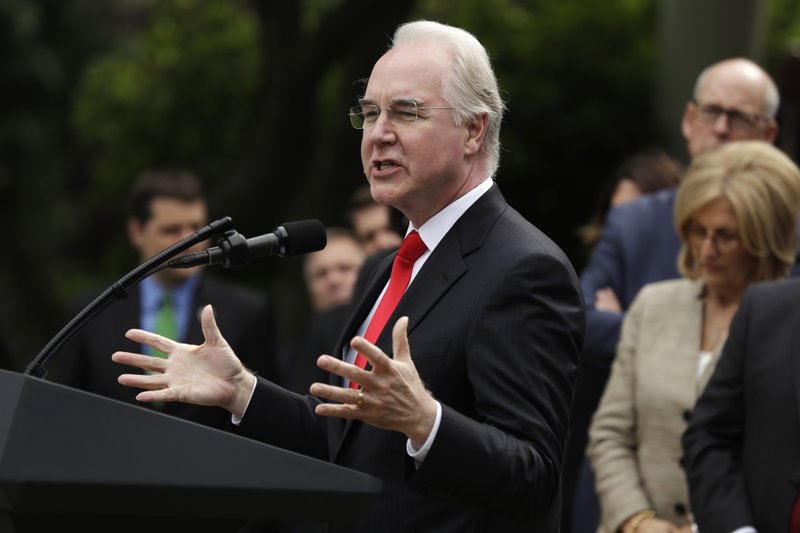
It took blood, sweat and tears for Republican leaders to finally push their health care bill through the House last week. Don’t expect the process to be less arduous in the Senate, though more of the angst in that more decorous chamber will likely be behind closed doors. No one expects a new bill to be written quickly, but Senate Majority Leader Mitch McConnell, R-Ky., has started a process for producing one. Republican senators have made clear their measure will differ markedly from the House legislation, which has drawn withering criticism from Democrats who see it as a pathway to winning a House majority in the 2018 elections. “This process will not be quick or simple or easy, but it must be done,” McConnell said Monday. MCCONNELL’S WORKING GROUP McConnell dislikes surprises and drama. Both characterized the House’s chaotic four months of work on its bill, which saw revolts by conservatives and moderates derail initial versions and humiliate President Donald Trump and Speaker Paul Ryan, R-Wis. McConnell has included himself in a group of 12 GOP senators essentially tasked with privately producing a bill that can pass the Senate. Republicans control the chamber 52-48. Democrats are virtually certain to unanimously oppose the Republican effort to repeal much of President Barack Obama’s health care overhaul. So Republicans are using a special process preventing a Democratic filibuster that would require 60 votes to end. McConnell will need 50 GOP votes to pass a bill, a tie Vice President Mike Pence could break. That means McConnell can lose just two Republicans, so his group has a strategically shaped membership. THE GROUP’S ROSTER Sens. Lamar Alexander, R-Tenn., Mike Enzi, R-Idaho, and Orrin Hatch, R-Utah, chair pivotal committees. Sens. Rob Portman, R-Ohio, and Cory Gardner, R-Colo., are from states that used Obama’s law to add hundreds of thousands of beneficiaries to Medicaid, an expansion they want to protect but the House bill would end. Gardner chairs the Senate GOP’s campaign committee. Sens. Ted Cruz, R-Texas, and Mike Lee, R-Utah, are conservative firebrands who represent states that didn’t expand Medicaid but want additional funds for that program. Sens. John Cornyn, R-Texas, John Thune, R-S.D., and John Barrasso, R-Wyo., are in the Senate GOP leadership, and Tom Cotton, R-Ark., is an ambitious up-and-comer who frequently criticizes the House measure. Democrats and liberal activists have lambasted McConnell for appointing a group with no female members. POSSIBLE CHANGES Portman is among Republicans whose states dislike the House’s Medicaid cuts because they’d face a wave of constituents losing coverage under the health care program for the poor. The House would end the extra federal money states get for new beneficiaries under Obama’s Medicaid expansion by 2020, and some GOP senators want a delay. Much Medicaid money is used to combat the illegal use of addictive opioid drugs. That’s another reason for GOP senators from hard-hit Midwestern and Northeastern states to oppose such cuts. Obama’s law helps millions buy private insurance with federal subsidies geared to income and policy premiums. The House instead links its aid to age, with older people getting larger tax credits. Thune and others want to shift the subsidies more generous to lower earners. Cruz said House conservatives won “a positive improvement” with provisions letting states get federal waivers so insurers can charge some people with pre-existing conditions higher premiums, and letting states decide which medical services insurers must cover. He said “considerably more work” was needed to lower premiums. In addition, the filibuster-free process Republicans are using requires that legislative provisions be related to raising or decreasing the federal deficit, and not primarily driven by policy changes. Conservative health care analyst James Capretta says the odds for survival “are low” for House language allowing state waivers for higher premiums on people with pre-existing conditions. Also in jeopardy: a provision forbidding consumers to use federal subsidies to buy insurance covering abortion. The Senate parliamentarian will decide whether provisions must be stricken from the bill. The Senate could override that with 60 votes. POLITICAL ERUPTION The pro-Democratic group Save Our Care is running ads in 24 districts whose GOP House members backed the bill asking, “How could you do this to us?” Obama urged lawmakers to use “courage” to protect health care for poorer Americans, a rare public comment on public policy since leaving office. Underscoring political sensitivities, critics attacked Rep. Raul Labrador, R-Idaho, for saying at a town hall meeting that “nobody dies” from lack of health care. He later said that “wasn’t very elegant.” Republicans are advertising too. The American Action Network, with links to House GOP leaders, is advertising nationally and in Ryan’s district promoting the bill. Sen. Bill Cassidy, R-La., was set to appear on ABC’s “Jimmy Kimmel Live” after saying any GOP bill must pass “the Jimmy Kimmel test.” The talk show host last week delivered a tearful monologue describing life-saving heart surgery his newborn son had received and saying lawmakers must help people afford health care. LOOKING AHEAD The nonpartisan Congressional Budget Office is expected to release its analysis of the House bill this month. It projected an earlier version would toss 24 million people off health coverage, a damaging blow that made it harder for House Republicans to pass their bill. No one is certain when the Senate might approve its bill, though some following the process think that could come by July 4. Republished with permission of The Associated Press.
Senate wary on ‘Obamacare’ repeal, bumpy path ahead

Republicans are claiming a triumph by pushing their legislative centerpiece scuttling much of President Barack Obama‘s health care law through the House. It was a perilous journey, and its Senate pathway will be at least as bumpy with little doubt the measure will change, assuming it survives. Thursday’s 217-213 House passage — with 20 GOP defections — was preceded by several near-death experiences for the legislation, even though repealing Obama’s statute helped guide Donald Trump‘s presidential run and multitudes of GOP congressional campaigns. And that was in a chamber Republicans control 238-193. Had just two additional Republicans voted “no,” the measure would have lost because bills need majorities to pass. Now, Republicans must try maneuvering the measure through a Senate terrain that is different politically and procedurally from the House. “We must manage expectations and remain focused on the art of the doable as we move forward,” said Senate Finance Committee Chairman Orrin Hatch, R-Utah, among several cautionary statements issued by Senate Republicans after the House vote. The House bill would end the Obama law’s fines on people who don’t purchase policies and erase its taxes on health industry businesses and higher-earning people. It would dilute Obama’s consumer-friendly insurance coverage requirements, like letting states permit insurers to charge higher premiums for customers with pre-existing medical conditions. The measure would replace Obama’s federal subsidies for lower-income insurance buyers with tax credits geared to consumers’ ages. And it would cut Medicaid, the health insurance program for the poor and disabled, including ending extra federal payments 31 states are accepting to expand Medicaid to cover more people. The notoriously understated Senate Majority Leader Mitch McConnell, R-Ky., lauded the House bill as “an important step” to erasing Obama’s law but left the door open to changes. “Congress will continue to act on legislation to provide more choices and freedom in health care decisions,” McConnell said. The House bill was written by Republicans representing districts often drawn to incorporate strong majorities of GOP voters. Senators represent entire states, and many tend to reflect more pragmatic views than their House colleagues. Several come from northeastern and Midwestern states with large numbers of low-income people receiving Medicaid. Many of the 31 states that accepted Obama’s expansion of that program are led by GOP governors, and senators have no interest in cutting their states’ funds and taking coverage away from voters. Republican senators also represent states ravaged by deaths caused by opioid abuse. The House measure would let states escape Obama’s requirement that insurers cover anti-drug services. “I’ve already made clear that I don’t support the House bill as currently constructed,” said Sen. Rob Portman, R-Ohio. He cited its Medicaid cuts, including for treating people with drug problems, and said he’d make sure that “those who are impacted by this epidemic can continue to receive treatment.” In March, Portman joined three other GOP senators in opposing Medicaid cuts in an early version of the House legislation. In a letter to McConnell, they wrote that the measure “does not provide stability and certainty for individuals and families” who use the program. Sen. Susan Collins, R-Maine, said the House bill poses “more questions than answers about its consequences.” She said there should be “no barrier for coverage” for people with pre-existing medical conditions and that the House’s tax credits “do not adequately take into account income levels” or regional differences in health costs. Collins and Sen. Lisa Murkowski, R-Alaska, have opposed cutting federal money for Planned Parenthood. The House bill blocks federal payments for a year to the organization, which provides abortions but doesn’t use federal funds for them by law. Other senators are also seeking changes. No. 3 Senate GOP leader John Thune of South Dakota is working on a plan to skew the bill’s tax subsidies more toward lower-income people. States that did not expand Medicaid under Obama’s law are looking for additional funding for their programs. Sen. Lindsey Graham, R-S.C., whose state did not enlarge Medicaid, said he would not back a health care bill “that rewards people for taking Medicaid expansion at the expense of those who did not.” Then there are senators like Ted Cruz of Texas and Rand Paul of Kentucky, former presidential candidates who seldom back away from fights and have already signaled they’re looking for changes. The Republican edge in the Senate is just 52-48. Using special rules, the Senate could pass its version of the bill with just 50 votes and rely on Vice President Mike Pence to break a tie. But that means they can lose just two GOP senators assuming Democrats uniformly oppose scrapping Obama’s signature domestic achievement. Those same bylaws bar provisions that aren’t chiefly aimed at federal spending or revenue, meaning some House language dealing strictly with policy changes could fall out. “The Senate will now finish work on our bill, but will take the time to get it right,” said Sen. Lamar Alexander, R-Tenn. He chairs the Senate health committee. Republished with permission of The Associated Press.
GOP health plan spurs sick to #IAmAPreexistingCondition
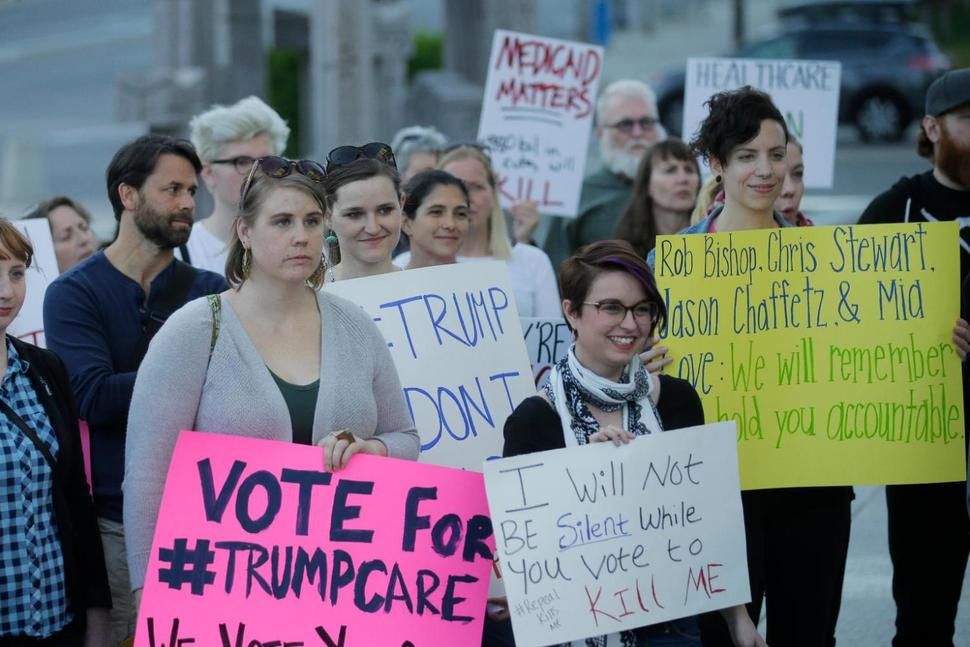
Concerns about coverage for Americans with pre-existing conditions under the Republican health care bill are prompting some people to tell their personal stories on Twitter. At the “IAmAPreexistingCondition” hashtag, Twitter users describe how the proposed law, approved by the House on Thursday, could affect them or family members dealing with serious illnesses. Some describe suffering from cancer, hereditary diseases or post-traumatic stress disorder brought on by combat. Under the House proposal, states would be able to get federal waivers to allow insurers to charge higher premiums to people with pre-existing illnesses who have let their coverage lapse. The bill includes billions of dollars more to help these people, but experts say it’s unlikely to be enough. Republished with permission of The Associated Press.
Alabama lawmakers discuss their votes to repeal Obamacare
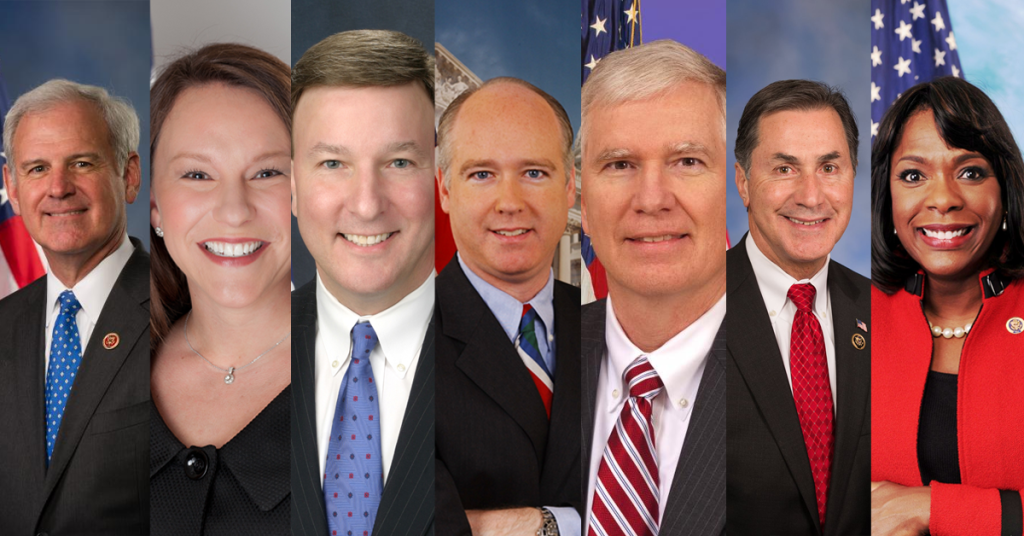
The U.S. House of Representatives on Thursday approved a bill to repeal and replace major parts of the Affordable Care Act, better known as Obamacare. On President Donald Trump‘s 105th day in office, H.R. 1628: American Health Care Act (AHCA) of 2017, was narrowly approved 217-213. All Democrats, including Alabama’s own 7th District U.S. Rep. Terri Sewell, and a group of mostly moderate Republican holdouts voted against the bill. Passing the American Health Care Act is the first of a three-step plan by Republicans in Congress and the Trump Administration to repeal and replace Obamacare. Upon enactment of AHCA, Health and Human Services Secretary Tom Price will begin using his authority to unravel the web of Obamacare rules and regulations that drive up patient costs. Finally, Congress will take up stand alone legislation to further bring down costs through bipartisan proposals such as allowing insurance competition across state lines and health care portability. The bill now heads to the U.S. Senate for consideration, where it expected to modified significantly. Here’s what the Alabama delegation had to say about their votes: Alabama 1st District U.S. Rep. Bradley Byrne: Today, I voted to repeal Obamacare and replace it with a health care plan that actually lowers costs and gets the federal government out of the way. Importantly, the bill continues to ensure protections for people with pre-existing conditions. It also cuts taxes, defunds Planned Parenthood, and fundamentally reforms Medicaid. To be clear, I understand additional changes to the bill may be necessary as the bill moves over to the Senate, but today was a step in the right direction toward rescuing the American people from the failures of Obamacare. Alabama 2nd District U.S. Rep. Martha Roby: For seven years I have promised my constituents that I would repeal and replace Obamacare. A month ago I sat in the Oval Office and told the President of the United States that I was with him and that I would help get this Obamacare repeal bill through the House of Representatives. Today we were finally able to deliver on that promise in a meaningful way. Obamacare is crumbling as we speak. Premiums are skyrocketing, deductibles are through the roof, and people are being hurt because they can’t afford care. That’s why we are repealing this failed law and replacing it with a patient-centered system that lowers costs, increases choices, and isn’t run by the government. Alabama 3rd District U.S. Rep. Mike Rogers: No public comment at this time. Alabama 4th District U.S. Rep. Robert Aderholt: Today I voted for, and the House passed, what the Republicans have promised to do for the past seven years: repeal and replace Obamacare. Contrary to claims in the media, doing nothing was not an option. Obamacare is failing us and premiums are getting worse, not better. Americans continue to see their healthcare options dwindle. Obamacare has also led to more expensive insurance that Americans cannot afford to use – higher premiums and higher deductibles. Today’s vote addresses these issues head-on. This bill ensures that individuals with preexisting conditions will continue to have insurance coverage. There is also assistance for older, rural and poor seniors included in this bill. In addition, today’s vote repeals all of the Medicaid funds from Planned Parenthood and instead redirects this money to the Federally Qualified Health Centers (FQHCs). This amounts to 90% of the federal funds received by Planned Parenthood. Alabama 5th District U.S. Rep. Mo Brooks: While today’s health care legislation falls short of the full ObamaCare repeal that I called for and believe in, a partial repeal does more good for working American families than no repeal at all. I am proud that diligent House Freedom Caucus work has forced amendments that converted substantial increases in health insurance premiums into substantial cuts in health insurance costs for tens of millions of Americans. The AHCA repeals roughly twenty ObamaCare taxes that have hurt job creators and cut take-home pay. The AHCA repeals the ObamaCare individual and employer mandate penalties that undermine freedom of choice and liberty. Alabama 6th District U.S. Rep. Gary Palmer: Today the House of Representatives took the first step toward repealing and replacing the misnamed Affordable Care Act and restoring access to affordable healthcare for all Americans. …There is no underlying intention to exclude people from coverage, including those who have been previously sick, and it is important to note that this bill will not exclude people from coverage. There is a little known provision in the bill which defunds Planned Parenthood for one year and will protect this lives of the unborn. This bill is not the end of our efforts to dismantle Obamacare and repair the damage done to our healthcare system. It is the first major step forward. Alabama 7th District U.S. Rep. Terri Sewell: The passage of today’s healthcare repeal bill was a tragic case of Republican leadership putting politics over people. The GOP rushed this bill through the House without pausing to get a full estimate of what it will cost or how many lives it will impact. That’s legislative malpractice. I voted against TrumpCare because we know it will drive healthcare prices up for working families all while lowering the quality of coverage they receive. I opposed this bill because it will force older Americans to pay premiums five times higher than what others pay for health coverage, while at the same time shortening the life of the Medicare Trust Fund that many seniors depend on. I voted no because TrumpCare will gut essential health benefits, and because my constituents deserve better. Today’s bill is a disaster for Alabama and a raw deal for the American people.
Mo Brooks, House Freedom Caucus nonplussed over Donald Trump threats
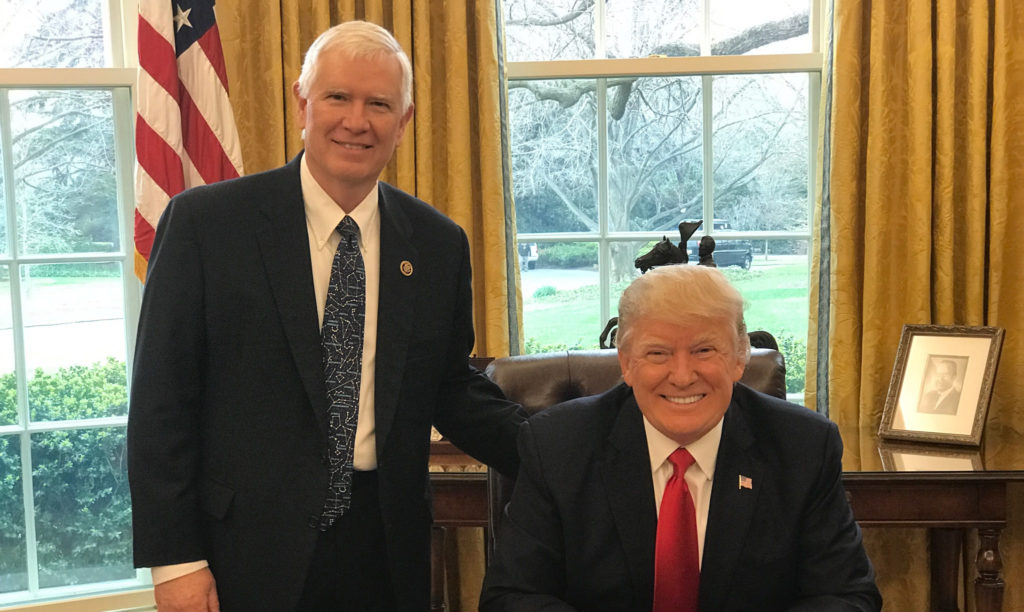
President Donald Trump was nonplussed with members of the House Freedom Caucus after Republicans were forced to pull the American Health Care Act after realizing it didn’t have the votes to pass. In a Thursday tweet, Trump even threated to oppose the conservative Republican group with the same vigor as Democrats in 2018 if they don’t fall in line with his priorities. “The Freedom Caucus will hurt the entire Republican agenda if they don’t get on the team, & fast. We must fight them, & Dems, in 2018,” Trump wrote. Alabama U.S. Rep. Mo Brooks, a member of the ultraconservative caucus, doesn’t seem worried though. “Trump’s tweets reaffirm that the Freedom Caucus is having a major impact on public policy in Congress — that the Freedom Caucus is not a force to be ignored,” he said in an interview with The Daily Signal. “This Twitterverse is the new Washington. I have zero worries about it. If you want me to vote for a piece of legislation, either persuade me it is good for America or change it so that it is good for America.” Brooks likely doesn’t have much to worry about in 2018, either. The CD 5 Republican has been in the House of Representatives since 2011 and in his most recent election he doubled the vote count of Democratic challenger Will Boyd.
Thursday vote on GOP health care bill canceled

GOP leaders in the U.S. House of Representatives have canceled a scheduled Thursday night vote on a plan to repeal and replace President Barack Obama‘s signature health care law, a Republican aid confirmed to Alabama Today. The decision came after conservatives in the House Freedom Caucus failed to strike a deal on the bill in a meeting with President Donald Trump Thursday at the White House. North Carolina-Republican U.S. Rep. Mark Meadows, chairman of the House Freedom Caucus, told reporters while no deal had been made today, he was still hopeful one ultimately would be. “I am very hopeful we can find a way to yes,” said Meadows of a future deal. This story will be updated.
What they’re saying about the American Health Care Act: Robert Bentley
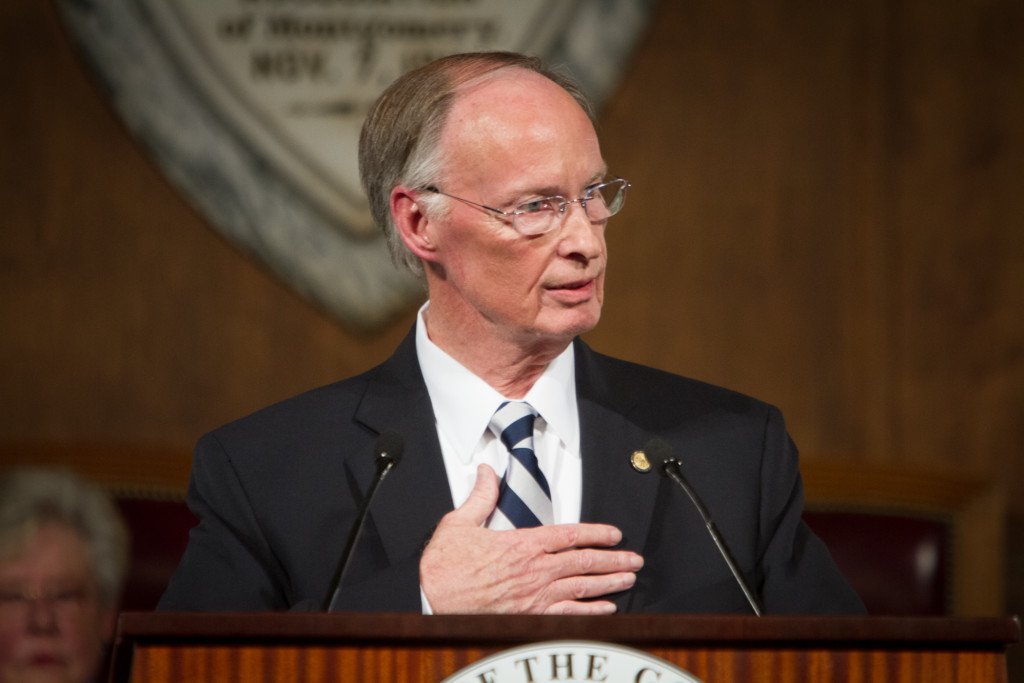
The Republican alternative to replace Obamacare will face it’s first test Thursday. The U.S. House of Representatives is expected to vote on the new American Health Care Act (AHCA) to repeal and replace the Affordable Care Act, better known as Obamacare. On Wednesday, Alabama Gov. Robert Bentley addressed a letter to President Donald Trump thanking him and his Administration for developing the plan — a three-pronged approach intended to improve health-care delivery and health insurance in our country. Bentley mentioned that he is also looking forward to working with the Trump Administration to help Alabama improve Medicaid for its citizens by providing managed care through regional care organizations. “Secretary Price on Monday, in a meeting with me and other Alabama officials, assured us that Alabama, a state that stood strong and chose not to expand Medicaid, will be given much-needed flexibility to adjust to changes proposed by the American Health Care Act,” he said in his letter to the President. Bentley wanted to make sure Alabama, and the 18 other non-expansion states, was not financially hurt in the health care overhaul. “Given such assurances, and given some key changes made in recent days to the proposed American Health Care Act, I support the legislation,” Bentley continued. Under the new proposal, Alabama would receive an additional $90 million annually for five year. Read the full letter below:
Robert Bentley, lawmakers head to DC ahead of health care vote
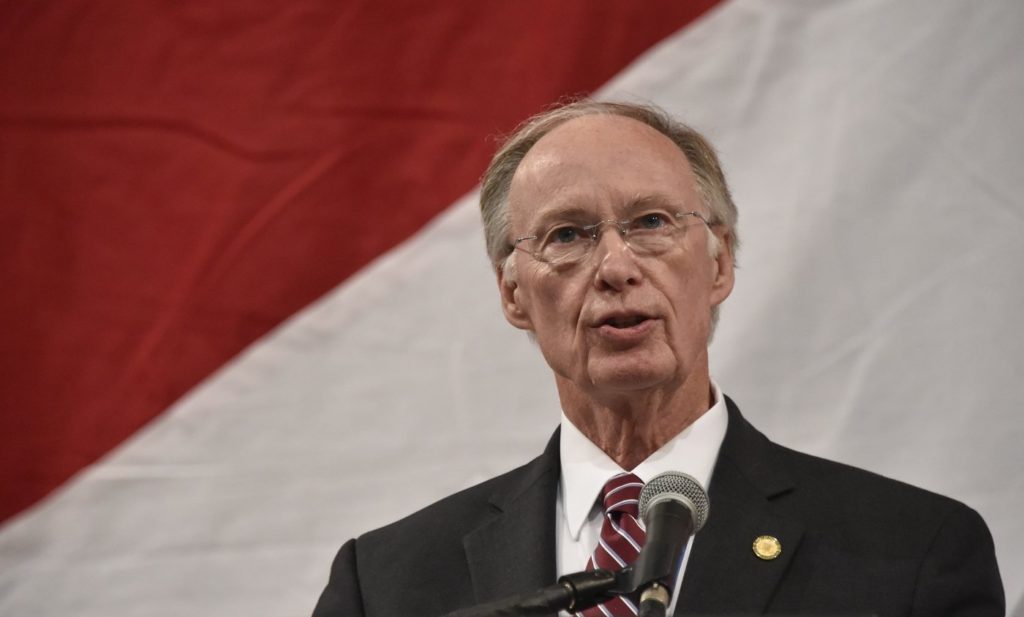
Gov. Robert Bentley and other state leaders are starting the week in Washington, D.C. ahead of the expected House vote on the American Health Care Act. Joining Bentley are state House Speaker Mac McCutcheon, state Sens. Greg Reed and Tripp Pittman, and Alabama Medicaid Commissioner Stephanie Azar. During the trip, the officials plan to meet with Health and Human Services Secretary Tom Price as well as congressional leaders to discuss the potential impact the Republican-backed bill, as well as the repeal of the Affordable Care Act, could have on Alabama’s Medicaid system. “As a Physician and as Alabama’s Governor, I have stood in opposition to the Affordable Care Act from day one. It’s not about health care of patients, and it’s certainly anything but affordable,” Bentley said in a statement Monday. “Alabama stood strong against the expansion of Medicaid because we simply cannot afford it. Now that a Repeal of the ACA appears imminent, we want to insure Alabama’s Medicaid system will be supported, and states given broad flexibility in any efforts to replace this unworkable and expensive law. We want to insure Alabama’s needs are known and clearly understood before a vote takes place.” Tuesday, Bentley and the officials plan to meet with members of the Alabama congressional delegation as well as White House administrators before returning Tuesday evening. “We have a strong Alabama team in Congress, and we have stayed in close contact throughout the effort to pass a new healthcare law,” Bentley said. “One size does not fit all when it comes to sovereign states and their needs. I am confident our Alabama delegation will always do what’s in the best interest of our people.” The trip follows a series of meetings between Bentley and other non-expansion state governors and the Alabama Republican Party Executive Committee addressing states’ concerns with the repeal and replacement of the Affordable Care Act.


